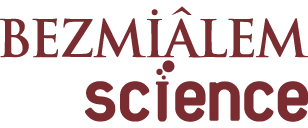ÖZET
Amaç:
Kanser tedavilerinden biri olan kemoterapinin neler getireceği konusunda hastalar belirsizlik ve korku yaşamaktadırlar. Bu belirsizlik ve korku, sıklıkla hastaların sosyal destek gereksinimini artırmaktadır. Sosyal desteğin, aile, arkadaş yada sağlık personelinden gelmiş olması önemsenmeksizin, kemoterapiyle daha etkin baş etmede önemli rol oynadığı düşünülmektedir. Sosyal destek, kemoterapinin semptomları gibi olumsuz durumlara karşı bir tampon işlevi görmektedir. Sosyal destek, kemoterapinin neden olduğu stres ile başa çıkmasına ve bunun yanı sıra yaşam kalitelerini de artırmaya yardımcı olmaktadır. Araştırma, jinekolojik kanserli kadınlarda algılanan sosyal destek düzeyleri ve kemoterapi semptomları arasındaki ilişkinin belirlenmesi amacıyla yapılmıştır.
Sonuç:
Bu çalışmada sosyal desteğin kemoterapiye ilişkin bazı semptomlar (boğaz ve ağız, deri ve tırnaklar ve gerginlik hissi) ile anlamlı ilişkisi bulunurken, bazı semptomları (nefes darlığı, ishal, kabızlık, enfeksiyon belirtileri, alopesi, ellerde veya ayaklarda uyuşma) etkilemediği saptanmıştır. Sosyal destek durumunun ülkemizde kanser hastalarında fiziksel ve psikolojik semptom yaşamada önemli bir faktör olduğu sonucuna varılmıştır.
Bulgular:
Deri ve tırnaklar, ağız, boğaz, kilo, uyuma güçlüğü, endişeli veya sıkıntılı hissetme, karamsar veya üzüntülü hissetme ile ilgili problemler ile
Yöntemler:
Çalışma tanımlayıcı olarak planlandı. Örneklem, iki devlet hastanesine başvuran 148 hastayı içermektedir. Veriler Kemoterapi Semptom Değerlendirme Ölçeği, Çok Boyutlu Algılanan Sosyal Destek Ölçeği (ÇBASD) ve bir tanımlayıcı özellikler formu kullanılarak toplanmıştır. Veriler SPSS yazılım programları kullanılarak analiz edilmiştir.



